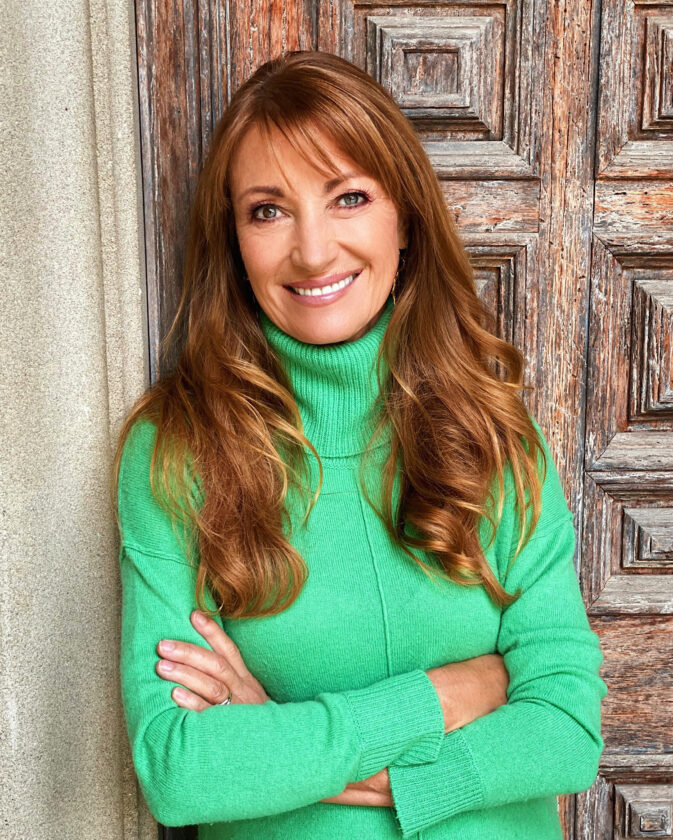Leading by Example and Making the World a Better Place Too
Journalist and Former California First Lady Maria Shriver receives the Los Angeles Press Club’s Public Service Award
BY ALEX BEN BLOCK
Although Maria Shriver already had a distinguished career in journalism, her life changed in 2003 when she woke up to find herself First Lady of California. Determined not to let her role be simply symbolic, she created pioneering programs and initiatives to help the working poor, military families and the disabled, and to champion women. She inherited the Governor’s Conference for Women but soon realized there was little research into the lives of modern women. She discovered that the last national survey had been conducted nearly half a century earlier by Eleanor Roosevelt. Those results were presented in fall 1963 to her uncle, President John F. Kennedy.
“But one week later he was killed,” said Shriver, “so it kind of never went anywhere.” Shriver set out to uncover the status of women today. What she found shocked her. “I was surprised by how many women were actually the primary or co-bread winners for their family,” recalled Shriver. “It surprised me that only one- fifth of American families now had a man that went off to work and a woman who stayed home, and that image had not really caught up.” As first lady she could no longer practice journalism. Instead, she created a new vehicle.
“The Shriver Report is an initiative I started when I didn’t have a journalistic platform, and it has continued,” she said. “I think journalism is at its best when it informs, and it aspires and it ignites you to do something. That’s why I went into journalism, and I think that’s what the Shriver Report does.”
That focus, and her career, has earned Shriver the Los Angeles Press Club’s Public Service Award for Journalistic Contributions to Civic Life. Those kinds of accolades are not surprising to Alexandra Wallace, Senior Vice President of NBC News. “Maria has made it her life’s mission to shine a light on issues that matter most to women, especially those in need,” Wallace said. “She is a trailblazer in this space and we’re so proud of the work she’s doing.” Another admirer is Oprah Winfrey, who praised Shriver for “reviving old-fashioned solid journalism and igniting important conversations about the changing roles of women and men in our society. I was profoundly affected by the eye-opening documentary she recently produced about families living ‘paycheck to paycheck’ She has her finger on the pulse of what really matters to people and is able to document it in a way that brings value and true public service.”
Maria Owings Shriver was born into a family of wealth, but one that also taught public service. Her mother Eunice Kennedy Shriver, sister of President Kennedy, Sen. Robert F. Kennedy and Sen. Edward M. Kennedy, was an advocate for children’s health and disability issues, as well as the founder of Special Olympics, a cause her children and grandchildren continue to support. Maria Shriver was born in Chicago but grew up around Washington, D.C., where her father helped found the Peace Corps. He was also an architect of Lyndon Johnson’s War On Poverty and ran for vice president (’72) and president (’76). It was during that first campaign that his only daughter discovered her interest in journalism.
“I grew up with two people who were what I call Architects of Change,” said Shriver. “I never heard them talk about money, but every day they talked about what they were doing to change the world. They challenged us kids to think about what we could do. My parents drilled that down big time into all five of us.”
After graduating from Georgetown University in 1977, Shriver landed a job at CBS News. The first thing they gave her, recalled Shriver, “was a binder on ethics and standards that scared the living daylights out of me.”
She found a mentor in award-winning CBS producer Roberta Hollander, who more than 30 years later helps edit The Shriver Report. Shriver later moved to NBC and worked there until she became first lady. She returned to the network in 2013 as a special correspondent. Her work has garnered numerous awards, and she has been behind acclaimed documentaries and half a dozen best-selling books. Hollander said Shriver uses her “reporting and story-telling skills to uncover and discover what’s going on in this country, what needs to be changed, and how to do it. I really believe that not just because of who she is, but also because of her character and standards and storytelling skill, people all across this country pay attention when she shines a light on injustice and inequality.”
On Jan. 14 of this year, Shriver received another kind of honor. She was invited to the White House by President Obama to discuss “The Shriver Report: A Woman’s Nation Pushes Back from the Brink.” Some critics sneered that Shriver was just seeking more government welfare programs. She was unfazed by the critics.
“Anybody who said that didn’t read the report and didn’t listen to me,” responded Shriver. “People said, ‘Oh she’s just putting on the mantle of her father, screaming about big government.’ But what I clearly said was there are things each and every one of us can to do create a more compassionate, caring, conscious culture and country and companies. We can put the care in career.”
That certainly is how Maria Shriver has led her life.



